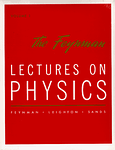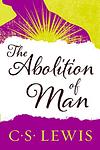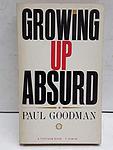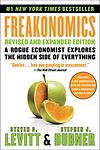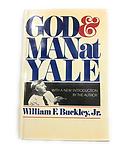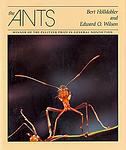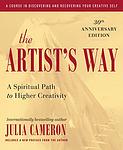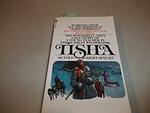The Greatest "Nonfiction, Education" Books of All Time
Click to learn how this list is calculated.
This list represents a comprehensive and trusted collection of the greatest books. Developed through a specialized algorithm, it brings together 300 'best of' book lists to form a definitive guide to the world's most acclaimed books. For those interested in how these books are chosen, additional details can be found on the rankings page.
Genres
The "Education" category for books encompasses a wide range of literature that aims to impart knowledge, skills, and values to readers. These books can cover various subjects, including science, history, literature, and mathematics, among others. They can be textbooks, reference books, or instructional manuals, and can be written for different age groups, from children to adults. The goal of education books is to provide readers with a deeper understanding of a particular subject or skill, and to help them develop critical thinking, problem-solving, and analytical skills. Overall, the "Education" category is an essential resource for anyone seeking to expand their knowledge and improve their abilities.
Countries
Date Range
Reading Statistics
Click the button below to see how many of these books you've read!
Download
If you're interested in downloading this list as a CSV file for use in a spreadsheet application, you can easily do so by clicking the button below. Please note that to ensure a manageable file size and faster download, the CSV will include details for only the first 500 books.
Download-
1. Essays by Michel de Montaigne
This collection of essays explores a wide range of topics such as solitude, cannibals, the power of the imagination, the education of children, and the nature of friendship. The author employs a unique and personal approach to philosophy, using anecdotes and personal reflections to illustrate his points. The essays provide a profound insight into human nature and condition, and are considered a significant contribution to both literature and philosophy.
-
2. A Vindication of the Rights of Woman by Mary Wollstonecraft
This influential work from the late 18th century argues passionately for the education and societal recognition of women. The author asserts that women are not naturally inferior to men, but appear to be only because they lack education. She suggests that both men and women should be treated as rational beings and imagines a social order founded on reason. The book is considered one of the earliest works of feminist philosophy.
-
3. The Autobiography of Benjamin Franklin by Benjamin Franklin
This book is an autobiography of one of America's founding fathers, detailing his life from childhood to adulthood. The author shares his journey from humble beginnings as a printer's apprentice to becoming a successful inventor, writer, businessman, and statesman. The book provides an insight into his thoughts and philosophies on various subjects such as education, self-improvement, and public service, offering a unique look at the early American history through his eyes.
-
4. The Feynman Lectures on Physics by Richard P. Feynman
This book is a comprehensive collection of lectures on physics by a renowned physicist, covering everything from classical mechanics to quantum mechanics, electromagnetism, and statistical mechanics. These lectures, designed to be accessible to those without a deep background in the subject, offer a unique and insightful perspective on the fundamental principles of physics, combining rigorous scientific explanation with engaging anecdotes and analogies. The book is widely regarded as an essential resource for anyone interested in or studying the field of physics.
-
5. Beyond Good and Evil by Friedrich Nietzsche
"Beyond Good and Evil" is a philosophical work that challenges the moral conventions of the time, arguing that concepts of good and evil are not absolute but are instead social constructs. The book delves into the nature of individual morality, asserting that it is driven by self-interest and the will to power. It also criticizes past philosophers for their unquestioning acceptance of religious and societal norms, and promotes the idea of the "overman" or "superman", a superior human who embraces his instincts and creates his own values.
-
6. The Story of My Life by Helen Keller
This book is an autobiography of a woman who, despite being blind and deaf from a very young age, overcomes her physical limitations and achieves great success in her life. Guided by her teacher, she learns to communicate and read, eventually attending college. The book offers a powerful and inspiring account of her determination, resilience, and unwavering spirit in the face of adversity.
-
7. Children of Crisis by Robert Coles
"Children of Crisis" is a deeply moving exploration of the lives of children in various challenging circumstances. The author, a renowned psychiatrist, documents his experiences working with children facing poverty, racial tension, and family disruption in the United States. The book provides insights into the resilience, adaptability, and strength of children, offering a profound understanding of their psychological responses to crisis and adversity.
-
8. The Natural History and Antiquities of Selborne by Gilbert White
"The Natural History and Antiquities of Selborne" is an exploration of the natural world in the English village of Selborne. The author, through a series of letters, provides detailed observations and insights into the flora, fauna, weather and geology of the area. The book also sheds light on the history and antiquities of the village, offering a comprehensive view of Selborne during the 18th century.
-
9. The Abolition of Man by C. S. Lewis
This philosophical book explores the concepts of objective value and natural law, arguing that these are essential for moral reasoning. The author criticizes modern education for producing "men without chests," by which he means individuals who deny the importance of moral absolutes. He suggests that this could lead to the "abolition of man" as we traditionally understand him, replacing moral individuals with conditioned responses. The book also discusses the dangers of scientific advancement without moral considerations.
-
10. The Road from Coorain by Jill Ker Conway
"The Road from Coorain" is a memoir that chronicles the author's journey from her childhood on a remote sheep station in Australia, through her adolescence in war-ravaged Sydney, and finally, to her departure for America. The narrative explores themes of self-discovery, gender roles, and the power of education while providing a vivid portrayal of life in the Australian outback. The memoir also delves into the author's complex relationship with her mother and the impact of her father's death on their family.
-
11. Areopagitica by John Milton
"Areopagitica" is a powerful 17th-century polemic against censorship and a passionate defense of the freedom of speech and expression. The author argues against the Licensing Order of 1643, which allowed the British government to censor literature and other forms of expression. He asserts that censorship is a form of tyranny and that in a true republic, freedom of thought and discussion should be promoted, not suppressed. The author also contends that exposure to a wide range of viewpoints, including those that may be false or harmful, is necessary for intellectual and moral growth.
-
12. Growing Up Absurd by Paul Goodman
"Growing Up Absurd" is a sociopolitical critique that explores the struggles of growing up in a society where the traditional routes to manhood – work, family, and citizenship – are increasingly invalidated. The author argues that this societal structure leads to widespread disaffection, mental illness, and juvenile delinquency among young people. He offers a profound analysis of contemporary culture and its effects on youth, also providing suggestions for societal change to address these issues.
-
13. There Are No Children Here by Alex Kotlowitz
The book follows the lives of two young African-American brothers growing up in a public housing complex in Chicago during the 1980s. The narrative portrays their daily struggles with poverty, violence, and the drug trade, while also highlighting their dreams and hopes for a better future. The book provides an intimate and heartbreaking look at the harsh realities of inner-city life, systemic racism, and the failure of public institutions to support vulnerable communities.
-
14. Freakonomics by Steven D. Levitt, Stephen J. Dubner
This book explores the hidden side of everything, debunking conventional wisdom and revealing surprising connections between seemingly unrelated things. It uses economic theories to explain social phenomena such as the decrease in crime rates in the 1990s, the impact of a person's name on their life outcomes, and the inner workings of drug gangs. By using data and statistics, it challenges the way people think about the world and encourages them to question the accepted truths in society.
-
15. God and Man at Yale by William F. Buckley, Jr
This book is a critique of the author's alma mater, Yale University, arguing that the institution had strayed from its original mission. The author claims that the university was promoting atheism and socialism, instead of fostering intellectual freedom and individualism. He criticizes the faculty for allegedly pushing their own political beliefs onto students, and calls for alumni to take a more active role in the oversight of their universities.
-
16. Hunger of Memory by Richard Rodriguez
"Hunger of Memory" is a memoir that explores the complexities of assimilation and cultural identity. The author recounts his journey as a child of Mexican immigrants growing up in America, detailing his struggles to balance his Mexican heritage with his American surroundings. From learning English in a Roman Catholic school to earning a PhD from an Ivy League university, the author grapples with feelings of alienation and the loss of his private identity, prompting a deep examination of what it means to be an "American."
-
17. The Closing of the American Mind by Allan Bloom
The book is a critique of the contemporary American educational system, particularly in universities. The author argues that the rise of relativism and the decline of the humanities have led to a crisis in American education, with students becoming less able to think critically and more prone to moral and intellectual confusion. The book also discusses the impact of popular culture and political movements on education, and argues for a return to a more traditional, classical education.
-
18. Common Ground by J. Anthony Lukas
"Common Ground" is a non-fiction book that provides an in-depth examination of racial tensions in Boston, Massachusetts during the 1960s and 1970s, primarily focusing on the controversial issue of court-ordered busing to integrate public schools. The narrative follows three families - one African-American, one Irish-American, and one Yankee - to depict the effects of these tensions on the city's different communities. The book also explores the historical, political, and social context of these events, offering a comprehensive analysis of a critical period in American history.
-
19. The Ants by E. O. Wilson, Bert Hölldobler
"The Ants" is a comprehensive exploration of the biology, evolution, and behavior of ants. The book covers a wide range of topics, including the ants' origin and classification, their morphology and physiology, their communication and social organization, and their ecology. It also delves into the complex societies and intricate behaviors of these creatures, providing a detailed insight into their world. The authors use a combination of narrative and scientific explanations to make the subject accessible to both general readers and specialists.
-
20. The Montessori Method by Maria Montessori
The book provides an in-depth exploration of the educational method developed by the author for teaching children. It emphasizes the importance of self-directed activity, hands-on learning, and collaborative play in child development. The book also discusses the author's philosophy of observing children in a "prepared environment" where they have access to materials and experiences to aid their learning. The method encourages children to make creative choices in their learning, while the teacher guides the process. The book also delves into the author's belief in the critical importance of the early years of a child's life in shaping their future development.
-
21. The School and the Child by John Dewey
"The School and the Child" is a thought-provoking work that delves into the philosophy of education. The author advocates for a progressive and child-centered approach to education, asserting that learning should be interactive, practical, and relevant to the child's life. The book argues against the traditional, rigid, and teacher-centered methods of education, emphasizing the importance of fostering creativity, critical thinking, and problem-solving skills in students. It also highlights the role of schools in shaping the social, emotional, and moral development of children.
-
22. Judgement and Reasoning in the Child by Jean Piaget
This book is a seminal work in the field of child psychology, exploring the ways in which children develop their cognitive abilities and reasoning skills. The author delves into the mental processes of children, focusing on how they form judgments, understand cause and effect, and develop logical thinking. The book also discusses the stages of cognitive development, highlighting the shift from intuitive to logical thinking. This influential work has greatly contributed to our understanding of child development and education.
-
23. The Artist's Way by Julia Cameron
This self-help book provides a twelve-week program designed to help readers unlock their creative potential. It presents a comprehensive guide to artistic inspiration and spiritual enlightenment, using various exercises and activities to help individuals overcome self-doubt, fear, and other obstacles to creativity. The book encourages readers to explore their artistic talents and abilities through activities such as morning pages and artist dates, ultimately aiming to foster self-discovery and personal growth.
-
24. Tisha by Robert Specht
"Tisha" is a biographical novel based on the true story of a young woman who moves to the Alaskan wilderness in the 1920s to become a teacher. The protagonist faces numerous challenges including harsh weather, isolation, and cultural differences, but remains steadfast in her commitment to educate the children in her care. The story also explores her fight against racial prejudice in the community, as well as her love affair with a half-Native man.
-
25. Anti-intellectualism in American Life by Richard Hofstadter
This book is a critical examination of the historical trend of anti-intellectualism in American society from the 19th century to the 1960s. The author explores how this disdain for intellectual pursuits and glorification of practical skills has influenced various aspects of American life including politics, business, education, and religion. The book also analyzes the roots of this phenomenon, linking it to populist movements, religious fundamentalism, and the American suspicion of elites and expertise.
Reading Statistics
Click the button below to see how many of these books you've read!
Download
If you're interested in downloading this list as a CSV file for use in a spreadsheet application, you can easily do so by clicking the button below. Please note that to ensure a manageable file size and faster download, the CSV will include details for only the first 500 books.
Download


